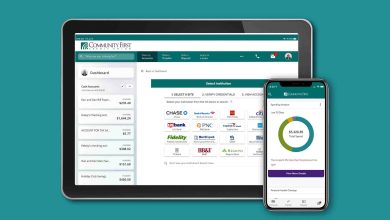An Ultimate Guide for Real Estate Development

Real estate developers are working in one of the most challenging areas of the real estate field, called land development. They find a piece of land. After that, they plan to build residential societies, industrial complexes, shopping centers, and other commercial constructions. Not only do they build new buildings, but they also modify and improve existing ones. Sometimes, they buy neglected and ruined properties and turn them into attractive apartments. The developer should have enough knowledge and vision to recognize the potential of a property. Real estate development is not the one man show. The property developers work with architects to design a project. The developers need to hire a contractor to build the designed development. As soon as the construction is complete, all of the units are up for sale or lease.
What are the requirements to work as a real estate developer?
At first, you need to determine whether this career path is a good fit for you or it matches your skills and interests. To help you, we have outlined below what you will need in order to get started as a real estate developer.
1. Education & Training:
You will wear many hats according to the need in the real estate field. So, a broad level of knowledge and experience will be of great value. The developer should be familiar with the different aspects and stages of real estate development, as well as possess strong financial management skills. As a developer, you are not required to obtain a specific degree or professional certification, although having a degree in a related field will greatly assist you. Some of the helping degrees are civil engineering, business management, urban planning, etc.
The ability to communicate effectively plays a vital role in each business. Further, you must have entrepreneurial instincts if you hope to succeed. Over time, most real estate professionals gain experience as sales agents, leasing agents, or brokers. This experience helps them to deal with clients in a better way.
2. Experience:
We all are familiar with the saying that practices makes a man perfect. Similarly, experience is vital to gaining success and appraisal in real estate. You can’t underestimate the value of your experience in the field. It is just as important as your formal education. A previous career in real estate as a broker, agent, or analyst will prepare you well for being a developer. Developers can pursue careers in finance, sales, construction, and a wide variety of other fields.
3.Connections:
Your professional and personal connections have an enormous influence on your success. The more people you know and have good market connections with, the more effective you will be. For example, brokers can help you find deals. Title agents can help you through transactions. Attorneys can assist you in legal matters.
A developer who wants to build strong relationships needs excellent communication and interpersonal skills. He must be diplomatic and possess strong leadership skills to build connections.
4. Creativity:
A real estate project demands a significant level of creativity. The average performance will not lead to a great project and make it worthwhile. Developers plan, design, and implement a dream project based on a random idea. Different real estate developers and their projects are differentiated by their creativity. In other words, it is the creativity of the property developer that gave birth to the array of projects.
5. Occupational Hazards:
The work of a property developer often involves finding and managing land, managing construction, and meeting with bankers, architects, contractors, and others involved with the project. This can be both exciting and challenging, as well as stressful and financially risky.
6. Risk-taking:
Risk is also a part of real estate development. Real estate builders ought to assume and bear risks. Risk-taking may lead to a successful real estate developer. Not all of us are daring to consider all the possibilities that are not assumed while planning. Successful land developers are those who can measure and calculate risks. They also have the capabilities to find out ways to mitigate risks.
7. Problem solver
In the beginning, each business or real estate project is assumed to make either positive or negative mistakes. Real estate developers have a lot of responsibilities, so problems are bound to occur. An ambitious developer believes there are many solutions to every problem. And a successful developer has the capability and skills to deal with challenges, including tight budgets, adjacent landlords, state authorities, and many other problems.




